A modern workplace is designed for diversity, equity, and inclusion of all employees, operating for the ultimate goal of belongingness. Join Dr. Diane Hamilton and Dr. Tana M. Session, Organizational Development Strategist and International Speaker, as they talk about the system of diversity and belongingness in the workplace. Dr. Session shares her insights on the vision of diversity and how companies can ensure to hire the best-qualified candidate for the job. Speaking on the other end, she then offers some tips on how anyone can set themselves up for success when an opportunity presents itself. Dr. Session gives us a peek into her book, Get Your Career Life in Order, which speaks to those who are aspiring for promotion or jumping into a new one. Listen to their conversation and realize where we are in our journey, whether as a company hiring or as someone looking to be hired, and how to move from there.
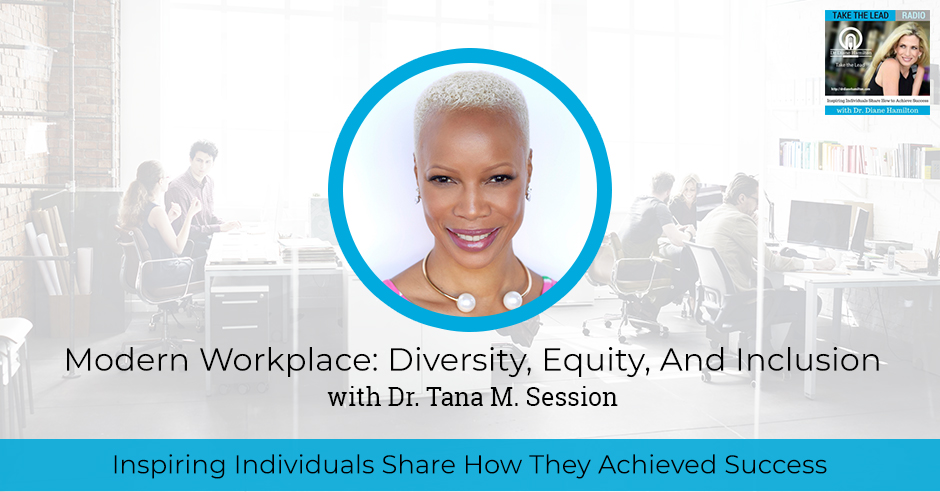
I’m glad you joined us because we have Dr. Tana Session here. She is an author of multiple books, the number one bestseller, Get Your Career Life in Order. She’s also got a new book coming out, Working While Black: A Woman’s Guide to Stop Being the Best Kept Secret. I’m excited to have Tana here.
—
Watch the episode here
Listen to the podcast here
Modern Workplace: Diversity, Equity, And Inclusion With Dr. Tana M. Session
I am here with Dr. Tana M. Session, who is the CEO and Founder of TanaMSession.com, which is a certified Women Minority Business Enterprise with more than twenty years of HR resources experience. She’s been recognized as a Top Company Culture Consultant. She has a lot of different places where she’s written, Forbes, Black Enterprise. She’s got a number one bestseller, Get Your Career Life in Order. She’s got a new book coming out. I’m excited to have you here, Tana. Welcome.
Thank you so much. I’m excited to be here as well.
It is going to be fun. I was looking forward to this. We have very many things that we find interesting in common. I know you deal with a lot of diversity, inclusion, recruiting and everything HR is interesting to me. I love all that stuff. I’d like to get a background on you because I wanted to know what got you this far. You’ve been very successful. Can you give us a little bit of a backstory?
[bctt tweet=”We fear that there isn’t enough room for us because there’s a lack of representation. ” via=”no”]I’ve been in HR for many years. Out of those, I spent about ten of them as the head of HR for different organizations. In 2014, I started my own company and started full-time consulting in 2015 where I get to work with different organizations, industries and sizes, as well as federal and state agencies to get a peek behind the curtain and to be able to help them shift their culture forward. Looking primarily through the lens of diversity, equity, inclusion, and belonging, but also from an organizational development perspective.
Those are all hot topics. I saw some of your companies. You’ve got McDonald’s, Cognizant and Xerox. I was trying to look at the list. I was like, “You’ve worked with some big names.” I’ve had a lot of diversity and inclusion experts I’ve talked to. I’ve had a few on the show. This is a hot topic right now. There’s so much going on in the world. You’re busier than you’ve ever been. What’s the big thing, the hot button that people want you to come to talk to them about the most in all of that?
I would say there are two, one being helping employees in particular hiring managers and recruiters understand unconscious and implicit bias, and how it impacts their decision making around hiring people, promoting people, interviewing people who don’t look like them. Secondarily would be understanding more about microaggression. It’s something that’s been talked about much more since the summer of the killing of George Floyd. A lot of talks and discussions are going on within organizations now around race relations and having these courageous and honest conversations. Helping to facilitate those types of conversations and then also helping them understand how unconscious and implicit bias and microaggressions show up in the workplace and then negatively impact the experience for all employees.
It‘s so important. It’s a lot of what I researched for my last book on perception. I remember talking to Vernice “FlyGirl” Armour who was on my show. Isn’t she great? I liked her a lot. She’s got such a unique perspective because being a black female, a former cop, she’s able to see things from different vantage points. What was interesting to me when I studied perception was the vantage point. When I wrote about emotional intelligence, I know you have to understand your own emotions and others and work appropriately, but I don’t think you don’t know what you don’t know. How do you get people to know what they don’t know?
It’s about meeting them where they are. Everyone is on their own unique journey and these last few months have been a period of awakening for many people where their belief systems are being rocked in ways it never had before. They’re second–guessing a lot of things that they have internalized and believed all of their life, based on maybe the way they were raised or generationally, their own lack of exposure to people who don’t look like them. For me, that’s the most interesting and intriguing part is to see that light go off though virtual these days. I used to do this in person. It was much more engaging, but to be able to see that light go off in this virtual world where they’re like, “You gave me a different way to think about this. I never looked at it that way. I never had to think about it that way, because it didn’t impact me.” They’re looking at their community, their society and their workplace through completely different lenses now, without the blinders.
It’s hard because I’ve worked in companies where they’d have events and it would be all white guys. You go, “You guys got to get a grip. You can’t do this. You’re out of touch and this is wrong.” I’ve seen things like on LinkedIn, a friend of mine who does many interviews as I do, where he interviews female, male, black, white, everybody. He happened to post a picture of one of his shows where it happened to be two other white guys with him on that one show. He took a beating for it from the people going, “Where is the diversity?” He is a diverse thinker. Do you think that it ever goes too far or do we need to have that reality check even if it’s taken out of context?
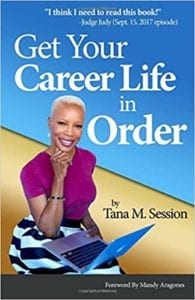
Get Your Career Life in Order
I started off by saying based on the conversations I’ve had and I’ve had conversations with many diverse people as well. I’ve had a lot of conversations with male white CEOs. It is not only an awakening period for them, but they also do feel like they’re being targeted. They can’t say or do anything right. That’s not the feeling I want them to have at all. Everyone is on their journey. I’m sorry that he had that experience. It was because of people’s own bias and not doing their research to see who he is as an interviewer. Who else has he had on his platform? What topics has he covered? Much of the time, those that are in that position are left with the heavy lifting of defending themselves too.
You don’t want to come off as defensive. That’s a whole other area that you have to deal with. I get it. I do. The work that I do is to ensure that A, my clients are hiring the best qualified candidate. If that person looks like me, great. If not, great. As long as it’s the best and you diversified the pool from what you pulled them from, and you were fair and equitable in your recruiting process, in your hiring, and your hiring managers were fair in their assessments of each candidate, regardless of what they look like on the outside or what their experience was.
Secondly, this is about creating cultures as inclusive and belonging for all employees. We don’t want anyone to be left out in the conversation. Everyone should be part of it. That’s where a lot of work has to be done. It’s great to diversify and bring all these different people into your organization, but if internally your structures, policies, procedures or values and how they’re distributed by leaders in particular aren’t set up for people who are marginalized to succeed, you’re going to hire them and they’re going to leave anyway. The work starts on the inside.
It is important that they get the thought process and discuss what’s happening. I had a former CEO of a top insurance company on my show. He works a lot with these different boards. I asked him about how California is wanting to get a certain number of women on the board. He said on the boards he works on, he thinks that they should only look for women, no men at all, when they replace people to get to the level where they want to go to get a more balanced group. He says if you keep replacing and sometimes have men, you’re never going to get to where you need to go. Do you think that’s fair?
I had a client who said something very similar and he referenced the Rooney Rule, which was, “We’re not going to interview any coaches unless they’re black candidates.” That’s the way he wants to manage his recruiting right now. It’s wrong. You want to ensure that you have a diverse slate of candidates and that you’re going to where they are. You’re diversifying where you’re looking. You’re constantly looking in the same pool, you’ll get the same fish so look in other ponds. Look in other areas. As long as you have a diverse slate. I would think that if they’re being intentional and thoughtful with their recruiting, they will find women that naturally fit the bill. They’ll find some men too.
[bctt tweet=”At the end of the day, we’re all fighting a lot of the same battles and trying to balance a lot of the same issues. ” via=”no”]I don’t think they should be excluded. You want to get the best qualified person. I’m not a fan of that. Especially if your recruiter is up for failure in a lot of ways, it frustrates your hiring managers. It prolongs the hiring process, which in a lot of ways, because we’re saying, “Let’s revisit what we’ve been doing. If it hasn’t been working, let’s start doing it differently.” You’re going to have to slow down and see back up again. You are going to take a little longer to have that seat filled, but you want to be thoughtful and intentional as that fit in your process.
I talked to another woman about this who was more the best candidates are former CEOs and former C-level CFOs. They are old white guys. If you want the best, that’s where they are, and this was a woman saying that. It’s a tough topic because you want to add diversity. Have you seen much of boards asking for people like with your background, an HR background, or are they doing that consulting on an outside basis or are they adding people to the boards that have HR experience like culture people?
I can’t speak to that. I’ve sat on boards as well. I was on the board of the Boys and Girls Club of Hollywood here and a couple of other nonprofit associations. They sought me specifically for my background. To the former guest’s point, I want to go back to that because it’s something for every one of us to think about. I hear her and I see her point, but that’s a bias. What we’re saying is the best people on our boards have been former CEOs. We know that based on the S&P, most of those are male, the majority of them are white men.
If you’ve never done anything different, how do you know that’s the best? You have no comparison point. You need to think about how do we diversify the experience that we’re looking for. That may mean some new skill that you never thought about before, these transferable skills that other people who never made it to CEO because they were a woman, or they were a minority. Maybe they made it to director level or senior director or senior VP, same skillset and same breadth of experience, but they don’t have the title.

Workplace Diversity: We need to have people around us who can give us different perspectives about ourselves that will improve us.
They have a different perspective that will equate to what you think is best in class to your board. That’s where I challenge these hiring managers. I would challenge even board members bringing on new board directors. I’ve done it in my seat as a board member to challenge them to think differently about this picture that they have in their minds about this individual that needs to sit in a seat because that’s a huge bias.
All your insights are important because you’re very well–known for your bestselling book, Get Your Career Life in Order. This is a different perspective. You’re talking to leaders in consulting and speaking and different things. Who is the book aimed at?
It’s anyone who’s thinking about either going for a promotion within their company or go into a new company. It’s pretty much any of us. It depends on where you are in your journey.
What do you cover in that book for those who haven’t had a chance to read it yet?
[bctt tweet=”We need to be able to really put ourselves in other people’s shoes and learn to meet them where they are on a human level. ” via=”no”]I take the readers through a step-by-step guide on what they need to do to set themselves up for success and their next opportunity, and how do they even get prepared to present themselves in a way that they are presenting their best personal brand for this next opportunity. Whether it’s because they want to go and get a new job, or they’re within a company and they’re looking to get promoted. I go over resume tips. I go over interviewing tips and follow-up tips once you’ve had the interview. I go over personal branding tips. I even talk about building a board of directors.
Speaking of boards, I had a board of directors that we all need because we are our CEO of our brand, but we need to have people around us that can give us different perspectives about ourselves that will help us continue to improve. I talk about what it needs to look like within the first 90 days on that new job or in that new position. What are some of the things you need to be focused on whether you’re setting yourself up for success? That you have ongoing communications with your direct manager to make sure that you’re targeted and focused on the right things in case the business change or what they hired you to do may shift as a result of business. Finally, I do have a segment in there in particular for people of color to help them understand that this is going to be something that’s a little different about your experience when you’re interviewing. “Here’s what those differences are based on my experience.”
A lot of people were looking for a lot of advice. You share advice in different ways. We have that in common. We speak, write, do different things. You’re a cohost for a nationally syndicated radio show that you’re on now. You have a lifestyle segment. It’s called In The Know. You’re sharing career and motivational advice. Tell me a little bit about that.
That was a segment for me because they rotate different people, my rotation ended in 2020. While I was on there, I shared information and some of the tips from my book. Some of them were questions that were pulled directly from the audience. We will open up the lines and have people ask questions about some of the challenges they were having on a job. They felt like they were being treated unfairly. Where did they go with that complaint? How did they deal with that manager or that employee? I’ve had people ask specific questions. One of my favorites, “Is HR in favor of the company or the employee?” Depending on your HR Department, your experience with them, you may think it’s one or the other. Explain it to them the evolution of HR and how the HR business partner came to be and what that should look and feel like for them. It was fun. It was exciting to be able to be on that program and provide real–time relevant advice to their listeners.

Workplace Diversity: It’s great to diversify, but if internally, you aren’t set up for marginalized people to succeed, then you’re going to hire them, and they’re going to leave anyway.
As you’re talking about advice, I was thinking about your new book that you were working on. I know we haven’t gotten into that yet. I want to get into that because you do give advice. Is your advice just for black women? Tell me the title because it’s a cool title.
It‘s called Working While Black: A Woman’s Guide to Stop Being the Best Kept Secret. No, it’s not just for black women. I’m speaking to black women.
You feel like, “Don’t people see that I’m capable of so much more?” Sometimes you’re in the business world and a lot of women don’t like to do that “look at me” thing as much. Do you focus on the differences between how men and women get noticed?
Yes. I provide tips on what women can do to help them break out of that. Between imposter syndrome and being worried about being labeled as aggressive or pushy, only a complete opposite of what a male employee or someone who is looking to be promoted will be labeled as on their path. I talk about that. It was where I shared my journey in terms of my growth and the lessons I learned along the way. I also was able to interview some other phenomenal women that are in different areas of credibility within their careers, both as some entrepreneurs, some within their corporate careers.
[bctt tweet=”If you’re not challenging yourself and those around you, then how do you learn? How do you grow? ” via=”no”]What we did was we wrapped our advice or our guide around five principles. Those principles are to understand how to own your power, truth, healing, worth and destiny. We shared those stories. We also gave strategies on how to excel in those five areas based on our personal experiences. We talk about microaggressions. We talk about intersectionality. We talk about imposter syndrome. We talk about the challenges of finding a mentor and a sponsor. We talk about when there’s one other woman in the room and she’s not a fan of yours, how do you navigate that relationship and become allies for one another? Those are the types of things that we talk about in this book. It was very candid, honest sharing of our personal experiences, as well as provide new strategies.
I had a lot of people on the show talk about the question of whether women hold women back. I’ve had some people say they think they do because there are limited opportunities. Do you think they do? Do you think that’s even true?
When I think about the book and the women who shared their stories, I would say that there were only 2 women out of 9 that had an opposite experience where the woman was on their side. They supported them. They were rooting for them. They were saying good things about them when they weren’t in the room. I agree with that assessment, thinking about my own experience and that of those that shared their stories and other women I talked to casually. We fear that there isn’t enough room for us because there’s a lack of representation.
When we get there, we have to hold on to that seat as tight and as hard as we can for fear of someone else coming along and taking it away. That is some imposter syndrome, but it also is about scarcity. It’s a scarcity mindset because we feel that if there’s more of us, there’s going to be competition. I’m going to have to prove myself a little harder because the focus is going to be off of me. This person’s going to get more focus, those types of things. Men enjoy it. They enjoy watching it. They talk about it. I’ve seen it. I‘ve heard it. I sat around the table with them and they get a good laugh off of us when they see this happen. Some of them encouraged it.
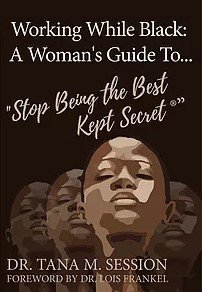
Working While Black: A Woman’s Guide To…” Stop Being The Best Kept Secret”
It’s a tough situation. I’ve had this discussion about women speakers versus men speakers too. A lot of Hall of Fame speakers, I’ll ask them about, “Do you think it’s fair of how women get judged as speakers compared to men?” Men could wear anything they want, say anything they want. It doesn’t matter. For women it’s, “Her heels were one inch too high.” Is it women who were doing the criticizing or is it the men?
It’s the women.
How do we stop ourselves from doing that? The men are noticing the heels, but they’re not complaining.
They’re not judging. They’re not in the judgment seat. They may think it’s something different, but it’s not about judgment for the most part. It’s unfortunate. We need to learn how to be sisters for each other, regardless of background, ethnicity, language. We’re all fighting a lot of the same battles and trying to balance a lot of the same issues. Whether it’s parenthood or being a significant other, now we went home not knowing we have other childcare or elderly care responsibilities. We need to be able to put ourselves in other people’s shoes and learn to meet people where they are on a human level. It’s heart to heart and get outside of our heads because a lot of that honestly is our insecurity that’s knocking at the back of our cerebra. It’s saying, “If you could say this about her, it makes me feel bad about you.” Think that or say that, and that it’s not right.
[bctt tweet=”Curiosity is a critical and direct link to improving motivation and communication-based issues. ” via=”no”]I’ve spoken to Forbes School of Business. Since I researched curiosity, it was interesting to me to see how women and men compare and how their levels of curiosity. I think it’s my Oxford study data. They looked at men and women to see how they responded after watching a live presentation. They went to a seminar. Men have no problem raising their hand and saying, “You’ve maybe had a little mistake there on your slide,” where women are like, “It must be me. I’m not going to say anything.” Men were more likely to ask questions right away where women like to have maybe 6 or 10 questions asked before they raise their hand. Men are 2.5 times more likely to ask questions than women. We know we want people to ask questions and that’s a huge difference. Where do you think curiosity plays in people’s success?
You have to be curious. We have to remain curious because if not, you become stagnant, comfortable and complacent. If you’re not challenging yourself and those around you, then how do you learn? How do you grow? I don’t ever want to stop being curious personally. I’m always curious about people, places, situations and things in general. That piqued my interest. It’s unfortunate, but I can believe those numbers. I’ve seen it myself as a speaker, as a trainer, the presenter, facilitator, both large and small audiences and groups. Even though all of us suffer with imposter syndrome, women and minorities suffer with it a lot more. Men do have that as a thing that could hold them back, but they push through it a lot faster and oftentimes effortlessly than women and minorities.
We, again, because we oftentimes are one of few or the only one, we don’t want to stand out, or we don’t want to be the one to make that mistake. We’re then going to be judged that much more harshly because we are the only one or one of a few. It’s a snowball effect. We have to learn how to push past that and get past the fact of thinking we have to be perfect. If we’re not, we’re not good enough or we shouldn’t have to seat at the table. They’re going to want to hire that, get here, or why am I here? I remember Michelle Obama said something. She said, “I’ve been in a room with some of the people that you would think are the smartest people in the world. I realized they’re not that smart.” That eliminated her imposter syndrome.
I’ve been in the room with her and seeing her speak. She is one of the smartest women I’ve seen speak. She was good. She was at a Workhuman event. I don’t know if you’ve gone to that event. It was here in Arizona a few years back. She was fascinating. This was interesting. It all ties into everything that I’m studying with curiosity and perception. You need to develop curiosity to build your ability to overcome bias and understand everybody’s got different perceptions of the same situation. It’s that building that empathy, which is a big part of emotional intelligence. I knew this was going to be an interesting conversation. A lot of people are going to want to know how to follow you, find you. Is there something you’d like to share, a website, or another way for them to locate you?

Workplace Diversity: Perception is critical to collaboration, to getting people to work together.
I’m located on all social media platforms @DrTanaMSession. My website is TanaMSession.com. They are more than welcome to pre-order. My book is available for pre-order right now. We’re waiting for the publisher to confirm the actual date for release for Working While Black: A Woman’s Guide to Stop Being the Best Kept Secret. All my other books are readily available on my website as well.
It’s very good timing. Everything that you write and speak about is important. Thank you so much for being on the show, Tana.
Thank you so much for having me. I appreciate it.
You’re welcome.
—
I’d like to thank Tana for being my guest. We get many great guests on this show. I hope you enjoyed this episode. I hope you join us for the next episode of Take The Lead Radio.
Important Links:
- Get Your Career Life in Order
- Working While Black: A Woman’s Guide to Stop Being the Best Kept Secret
- TanaMSession.com
- Vernice “FlyGirl” Armour – Previous episode
- @DrTanaMSession – Instagram
About Dr. Tana M. Session
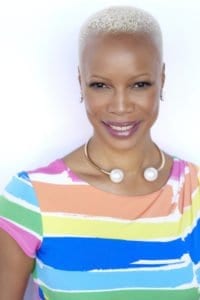 Dr. Tana M. Session is the CEO & Founder of TanaMSession.com, a certified Women Minority Business Enterprise (WMBE) with over 20 years of Human Resources experience. Dr. Session specializes in cultural engineering, facilitated experiences and leadership & organizational development. She has spent 10 years as the top Human Resources executive for both domestic and international organizations where she led various change initiatives and up-leveled entire departments, including talent, systems and infrastructure.
Dr. Tana M. Session is the CEO & Founder of TanaMSession.com, a certified Women Minority Business Enterprise (WMBE) with over 20 years of Human Resources experience. Dr. Session specializes in cultural engineering, facilitated experiences and leadership & organizational development. She has spent 10 years as the top Human Resources executive for both domestic and international organizations where she led various change initiatives and up-leveled entire departments, including talent, systems and infrastructure.
She has partnered with hi-tech start-ups and fast-growth companies as well as McDonald’s, Topa Insurance Group, Thermo-Fisher Scientific, Xerox, Cognizant, Citibanamex, and many other multi-national for-profit & not for profit organizations. Her experience has enabled her to embed her passion for Diversity, Equality & Inclusion in everything she develops and implements.
Tana was recently recognized as a “Top Company Culture Consultant” by Fond.co and a Huffington Post “Top Female Expert to Follow,” and in 2019, Tana received her Honorary Doctorate (PhD) degree in Philosophy/Humane Letters. Tana is the official LinkedIn Learning expert for Diversity & Inclusion in recruiting and interviewing and was also recognized by Forbes as a “Top Diversity & Inclusion Business Leader.” Dr. Session is an international speaker who has spoken at professional events throughout the U.S. as well as Bangkok, Dominican Republic, Cuba and Jamaica.
Love the show? Subscribe, rate, review, and share!
Join the Take The Lead community today:
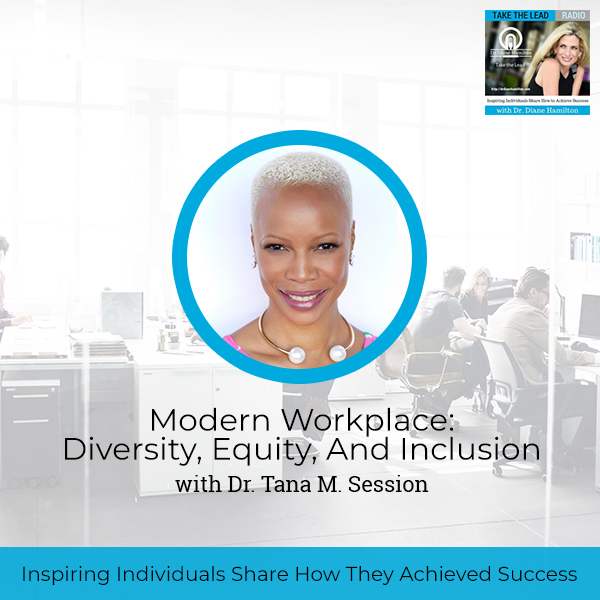

0 Comments